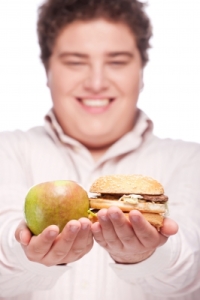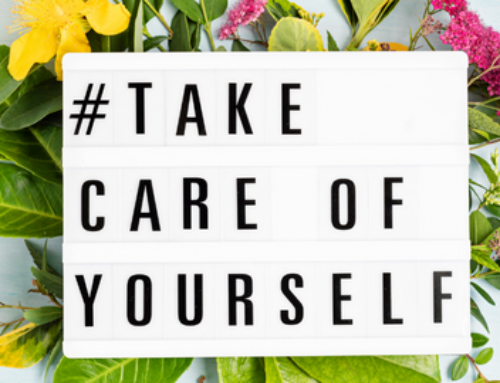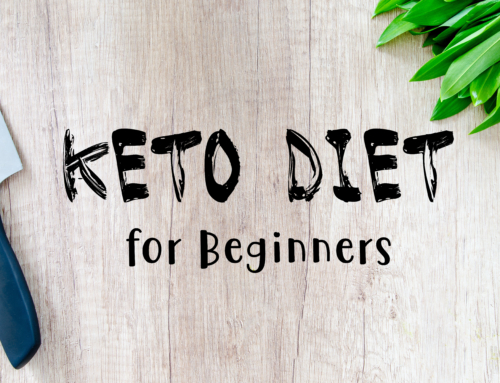Controlling Your Food Craving

Photo courtesy by: freedigitalphotos.net
There’s more to healthy eating and weight loss than simply tracking your food. How you think about food and respond to hunger, eating cues, and cravings also affect your diet and overall health.
As babies, we ate intuitively: We fussed when we were hungry and stopped eating when we were full.
As we grew older, the world around us began influencing what, when and how much we chose to eat.
After years of advertising, imposed meal times, cafeteria offerings, holiday meals, grandma’s comfort foods, and yo-yo diets, many of us have completely lost touch with our real hunger and satiety (the feeling of being full) signals. As a result, we confuse cravings with hunger and end up overeating or emotionally eating.
But hunger and cravings are very different, and by learning to distinguish the two, you can be more satisfied with your meals and reduce your calories without feeling the urge to continue eating. Here’s what you need to know to get back to your intuitive eating roots and manage your weight.
Hunger: Your Need for Food
By definition, hunger is “the painful sensation or state of weakness caused by the need of food.” Simply put, hunger is a signal from your body that it needs food for energy. When you’re truly hungry, your stomach, brain, or both will give you cues to tell you to eat.
Signals from your stomach may be growling, an empty, hollow feeling, or hunger pangs. Your brain may send signals such as a headache, trouble concentrating, irritability or fogginess. Some people even experience physical fatigue when they are hungry. Hunger does not go away over time – it only gets worse. And any food will satisfy your hunger and take the hunger signals away.

Photo courtesy by: freedigitalphotos.net
Appetite: Your Interest in Food
We talk a lot about appetite: “My son has a huge appetite!” or “I worked up an appetite at the gym.”
Appetite is not the same thing as hunger; it actually refers to an interest in food. It’s often said that someone’s appetite can override their hunger and fullness.
When some people feel stressed, they could lose their appetite and choose to ignore feelings of hunger.
Others respond the opposite way, eating in response to stress or negative emotions despite a lack of hunger or strong feelings of fullness.
And how many times have you sat down to a delicious meal and continued eating even though you were experiencing sensations of fullness?
That, too, is an example of appetite overriding the signals from your body. As you start becoming more aware of hunger signals, do not confuse appetite with physical signs of hunger.
Cravings: Your Desire for Specific Foods
Cravings are very different than hunger, yet somewhat similar to appetite. Look up “crave” in the dictionary and you will see “to long for; want greatly; desire eagerly.” Usually, the foods you crave are not a necessity, nor do they serve a life-sustaining need.
Cravings, unlike hunger signals, will change over time, even over a period of 10 minutes. They are usually triggered by emotions (stress, boredom, sadness, etc.), an attachment or fondness for a certain food, or proximity to appetizing food. Unlike hunger, where any food will quell the sensation, only one specific food will satisfy a craving.
The Four Types of Hungers
There are four types of hunger. Telling people who want to lose wait to “eat less” is a huge disservice if you don’t teach them about these tricksters! Let’s check them out.
Physical Hunger
This is what most people think of when they think of hunger;
-
it has everything to do with your stomach
-
when there’s food in your belly, you feel full
-
when your stomach is empty, you feel hungry
Physical hunger is the feeling you get several hours after a meal, after a long day of work, or after an intense exercise session. Your stomach growls and you might feel tired, irritable and have difficulty thinking. This is caused by your body’s true physical need for nutrients and energy.

Photo courtesy by: freedigitalphotos.net
Hormonal Hunger
But your feelings of hunger are affected by many factors beyond whether your stomach is full or empty. In fact, we often feel “hungry” again, soon after a big meal. Or we experience sudden, strong cravings, especially for sweets and carbs.
This is hormonal hunger, and it has little to do with how much you’ve eaten and everything to do with hormonal “ignorance “- your satiating hormones are either not working or you’ve become insensitive to them.
The cravings caused by hormonal hunger can overcome even the staunchest willpower, and can lead to intense mood swings, fatigue, and a near constant desire to eat, regardless of being “full.” This is the most common cause of eating too much. It’s gluttony at its worst!
Nutritional Hunger
There is also “nutritional hunger.” Since most food today is highly processed and void of nutrients, your hunger is truly never satisfied.
Therefore, after a poor meal, you’ll be hungry in hours due to your natural craving for nutrients. But rather than eating nutrient rich food, 99% of obese will simply eat more junk – eating themselves into more weight without knowing why!
When your diet consists largely of grain-based carbohydrates and other processed, refined foods, your body is missing out on hundreds of critical vitamins, minerals, phytonutrients and enzymes.
As a means of survival, it will continue to send hormonal signals to your brain to “EAT, EAT, EAT,” even when you have consumed far more calories than you need for basic energy requirements.
Learned Hunger
And finally, there is learned hunger. Since eating elicits a flood of feel-good molecules, the brain will “learn” when and how the food was obtained as a survival method to obtain more in the future. In its most benign form, learned hunger arises at meal time. And since 1pm – lunchtime – comes around only once per day, its fine.
But, in its most malignant form, learned hunger can force someone into overeating based simply on bad eating habits. For instance, if someone eats multiple times per day (bodybuilders and athletes) or while watching television, learned hunger can set in and force them to become hungry each and every time the situation presents itself.
The Reward System
There is a system in our brain called the reward system. This system was designed to “reward” us when we do things that encourage our survival. This includes primal behaviors like eating.
The brain knows that when we eat, we’re doing something “right,” and releases a bunch of feel-good chemicals in the reward system, such as the neurotransmitter dopamine – interpreted by our brains as pleasure.
The brain is hardwired to seek out behaviors that release dopamine in the reward system. The problem with modern junk foods is that they can cause a reward that is way more powerful than anything we were ever exposed to in nature.
Whereas eating an apple or a piece of steak might cause a moderate release of dopamine, eating a Ben & Jerry’s ice cream is so incredibly rewarding that it releases a massive amount. And so we head towards the wrong side of the road!
You Can Rewire Your Brain To Eat Healthy Foods

Photo courtesy by: freedigitalphotos.net
At birth, we are naturally drawn to healthy, nutritious foods. Until we discover that Cheetos and whoopee pies exist.
“We don’t start out in life loving French fries and hating, for example, whole-wheat pasta,” says Susan Roberts, a researcher at Tufts University.
She continues “’This conditioning happens over time in response to eating – repeatedly! – what is out there in the toxic food environment.”
The good news? We can reverse the process and train our brains to re-love vegetables, according to the research, which is published in the journal Nutrition and Diabetes. All it takes is a healthy diet.
In one study:
Thirteen overweight or obese adults participated in the study – eight were placed on a Tufts University-designed eating plan and five changed nothing at all. MRI scans before and after the study found the healthy dieters’ brains rewired to crave “celery over cinnamon rolls.”
The key to that shift, though, may be in the type of diet and an emphasis on behavior change, according to the study’s authors.
Participants were prescribed an eating plan called the iDiet, which consists of high-fiber, high-protein foods to maximize fullness while still eating healthy. The authors believe the key to craving those foods is also feeling satisfied after the meal. The dieters were able to feel full but still lose weight because of the nutrient-rich foods they were eating.
If you’re looking to crave spinach instead of sweets, eat foods that are nutritious and still fill you up.
Some Simple Tips To Control Food Craving
Every food can have a place in a well-balanced diet, as long as it’s eaten in moderation. But if you find that it is time to get control over your food cravings because they’re impacting your weight or your other efforts for better health, try these tips:
- Practice stress reduction.
Your entire being needs to know that you are not at a 4-alarm fire! Even five minutes of mindfulness meditation twice daily can calm your nervous system, help your cortisol levels return to normal, and transform your life.
You can practice a “quickie” meditation whenever you feel your stress level mounting. It goes like this: While inhaling deeply to the count of 4, say to yourself “I AM” and on the exhale to a count of 4 say “AT PEACE.” Rinse and repeat 4 times.
- Practice mindfulness in food choices and while eating.

Photo courtesy by: freedigitalphotos.net
To do this, simply take a moment before you eat something to really check in with yourself, from a place of centeredness. Ask yourself whether this is optimal for you and take a moment to think about what your body really needs right then.
Eat only when you feel relaxed. Eat slowly so that you can enjoy and savor your meals. Food should be one of our great pleasures in life. Mindful eating can help you break free from the grip of food addictions and feel better about your choices so that you can enjoy eating once again.
- Keep your blood sugar balanced.
Blood sugar balancing is a key to alleviating food cravings. Eat a healthy breakfast with a good quality protein every day.
Eat only nutrient rich foods, emphasizing proteins, high quality fats, and vegetables. Sugar sends your body on a roller coaster ride of highs and lows.
The lows (hypoglycemia) trigger your brain, which depends on sugar for energy, to think you are in a state of emergency and causes your stress response to get activated full tilt boogie.
Stable blood sugar = stable stress hormones, smoother emotions, and healthy weight.
- Optimal nutrient intake will help with satiety.
If your body isn’t getting the nutrients you need, you will crave more and more food as your body tries to get the nutrition you are really craving. This takes you back to points 2, 3, and 4 above. Taking a good multi-vitamin and mineral can also provide missing ingredients for optimal health.
- Sleep well.
This means getting 7 to 8 hours each night for most people. Less than this also leads to activation of the stress response and increased cortisol levels. We’ve all experienced fatigue leading to sugar cravings. Back to the same vicious cycle of stress, cravings, weight gain and so on.
In order to curb your cravings you may need to think about food and eating differently. We are not in a war with food that requires us to avoid it, restrict it or fight what we long for. Instead, we can recognize that our longings and desires for certain foods are just thoughts, often triggered by our environment, hormones or a desire for comfort.
Try telling yourself, “That’s a thought about craving food” the next time a craving hits, and then move on with what you were doing and see if you notice a change in how often you give in to a craving.
We all have bad days. Don’t be hard on yourself by dwelling on the bad days. Put it into perspective – how many good days have you had? Pick yourself up and carry on with determination to achieve your weight loss goals. You can do it!









